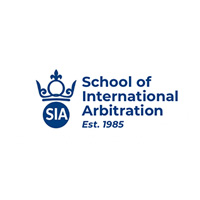2025 International Arbitration Survey: ‘The Path Forward: Realities and Opportunities in Arbitration'

In collaboration with
The 2025 International Arbitration Survey investigates current trends in user preferences and perceptions, and opportunities to shape the future innovation and development of the practise of international arbitration. This is the fourteenth major empirical International Arbitration Survey conducted by the School of International Arbitration, Queen Mary University of London.
Executive summary
The 2025 International Arbitration Survey questionnaire was completed by 2,402 respondents, nearly doubling the response rate from the previous survey held in 2021. This is the largest and most representative pool of participants yet.
Experiences and preferences
- An overwhelming majority (87%) of respondents continue to choose international arbitration to resolve cross-border disputes, either as a standalone mechanism (39%) or with Alternative Dispute Resolution (ADR) (48%). There has been a slight decline in preference for arbitration combined with ADR compared to previous surveys.
- The five most preferred seats for arbitration are London, Singapore, Hong Kong, Beijing and Paris. London and Singapore rank among the top five seats for each of the six regions in which respondents principally practise or operate.
- The five most preferred sets of arbitral rules are the ICC Rules, HKIAC Rules, SIAC Rules, LCIA Rules and UNCITRAL Rules. The ICC Rules are in the top three choices for each of the six regions.
- Geopolitical or economic sanctions impact arbitration proceedings in various ways: 30% of respondents chose a different arbitral seat; 27% faced administrative and payment challenges; 25% experienced difficulty finding counsel or arbitrators able to participate, raising concerns about access to justice.
Enforcement
- Award debtors generally voluntarily comply with arbitral awards, particularly when they are private parties rather than States or state entities. Unsurprisingly, the highest level of voluntary compliance is seen with consent awards, with only 8% of respondents reporting they are ‘never’ or ‘rarely’ complied with.
- The majority of respondents (61%) consider that awards annulled at the seat should not be enforceable in other jurisdictions. Still, many suggest it might be advisable to allow enforcement of an award that was annulled.
Efficiency and effectiveness
- The behaviours that most negatively impact efficiency in arbitration include adversarial approaches by counsel (24%), lack of proactive case management by arbitrators (23%) and counsel over-lawyering (22%). Respondents called for greater proactivity and courage from both counsel and arbitrators to address inefficiencies.
- The most effective mechanisms for enhancing efficiency were expedited arbitration procedures (50%) and early determination procedures for manifestly unmeritorious claims or defences (49%). While expedited procedures are particularly useful in less complex cases, their success depends on the tribunal’s readiness to make swift decisions.
- Respondents enjoyed excellent experiences with mechanisms for expediting arbitrations, such as expedited arbitration procedures embedded in arbitral rules and paper-only arbitration. Most would be willing to use them again. They also acknowledged the need to balance efficiency with procedural fairness.
- The decision to choose expedited procedural mechanisms is driven by pragmatic concerns, principally the desire to minimise costs (65%) and ensure rapid resolution (58%), particularly for disputes of lower value or complexity.
Public interest in arbitration
- Only one third of any of our respondents have encountered the various categories of public interest issues in their arbitrations. There is, however, an expectation that environmental and human rights issues will increasingly become present in both purely commercial arbitrations and disputes involving States or state entities.
- The primary advantages of international arbitration for resolving disputes involving public interest issues include the ability to select arbitrators with relevant experience or knowledge (47%) and to avoid specific legal systems or national courts (42%).
- The most significant challenges in arbitrating disputes involving public interest issues include balancing confidentiality and transparency (47%) and the lack of arbitral tribunal power over third parties (46%).
- Confidentiality of arbitration in this context can be viewed as both beneficial for delicate or reputation-sensitive disputes, and problematic for the potential to shield improper conduct of state entities from public scrutiny.
- Respondents are divided on whether international arbitration proceedings should be ‘open’ to the public. The vast majority favour maintaining confidentiality, especially in commercial arbitration. There is, however, greater support for publication of redacted awards, especially for disputes involving States or state entities.
Arbitration and AI
- Use of AI is expected to grow significantly over the next five years, driven by the potential for efficiencies. Principal current uses of AI include factual and legal research, data analytics and document review. AI assistance in drafting and in evaluating legal arguments is also expected to increase, but significant concerns persist about accuracy, ethical issues and AI’s ability to handle complex legal reasoning.
- The principal drivers for the increased use of AI in international arbitration are saving party and counsel time (54%), cost reduction (44%) and reduction of human error (39%).
- The principal obstacles to the greater use of AI in international arbitration are concerns about errors and bias (51%), confidentiality risks (47%), lack of experience (44%) and regulatory gaps (38%).
- Respondents largely approve of the use of AI by arbitrators to assist in administrative and procedural tasks. There is strong resistance, however, to its use for tasks requiring the exercise of discretion and judgment, which are fundamental aspects of the mandate given to arbitrators.
- The general consensus is that, over the next five years, international arbitration and its users will adopt, and adapt to, AI. Respondents predict that arbitrators will increasingly rely on AI (52%) and that new roles to work with AI will emerge (40%). The enthusiasm for greater use is tempered, however, by the desire for transparency, clear guidelines and training on the use of AI.
This survey was carried out in collaboration with global law firm White & Case LLP.
Academic leads

Norah Gallagher, Reader in Law
Norah Gallagher is the Academic Director of the Energy & Climate Change Law Institute and former ‘Jean Monnet Chair in Natural Resources Law and Policy’ (2018-2019) at the Centre for Commercial Law Studies. She is also the Director of the School of International Arbitration. Norah is a public international lawyer who has specialised in international dispute resolution for over twenty years. She has advised on a range of issues on international commercial and investment cases (under all of the main institutional rules; ICC, LCIA, AAA ICDR, Stockholm and ICSID). She regularly sits as arbitrator with a particular focus on natural resource disputes. Norah worked at Clifford Chance, Herbert Smith and was Director of the Investment Treaty Forum at the British Institute of International and Comparative Law from December 2007 before moving to Singapore in 2010.

Dr Maria Fanou, Senior Lecturer (Associate Professor) in International Dispute Resolution
Dr Maria Fanou is a Senior Lecturer (Associate Professor) in International Dispute Resolution at Queen Mary University of London, School of International Arbitration (SIA). She is also the Academic Director of the Comparative and International Dispute Resolution programme in London and the Acting Director of the LLM programme in Paris.
Dr Fanou is also a qualified lawyer with more than 15 years of practical experience in international dispute resolution both acting independently and working at law firms in Athens, Brussels, and Paris. Prior to joining Queen Mary, she worked as a Référendaire at the Court of Justice of the European Union.
